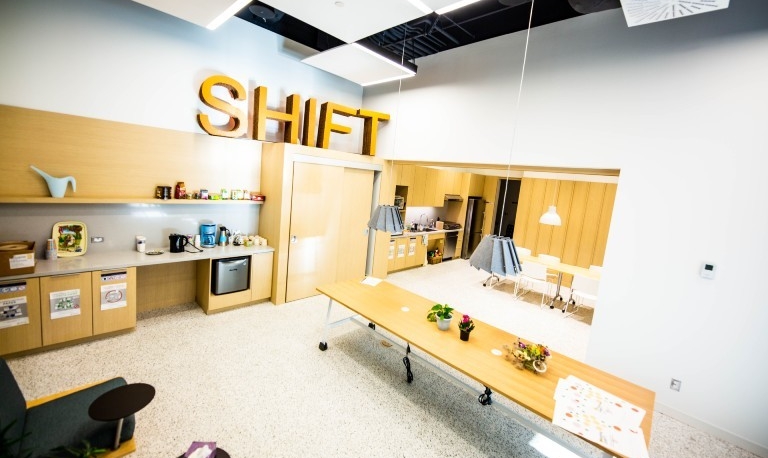Concordia’s Precious Plastic Project (CP3)
Led by a multidisciplinary team of students, CP3 tackles the global plastic crisis with creative solutions, including research activities, public awareness campaigns and a new recycling process.
Using a plastic shredder, 3D printer and other machinery, CP3 upcycles waste otherwise destined for municipal collection. So far, its creations include a BlueTooth speaker, earrings, flower pots and holiday ornaments.
“It’s very experimental,” says Maeva Ramboni, a CP3 member and social media and events assistant at SHIFT.
“Supporting small-scale prototypes on campus allows for the development of skills and models that can then be adapted for other institutions.”

 Maeva Ramboni
Maeva Ramboni
 Aishah Seivwright
Aishah Seivwright
 Felice Yuen | Photo by David Ward
Felice Yuen | Photo by David Ward


